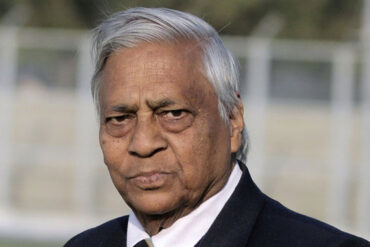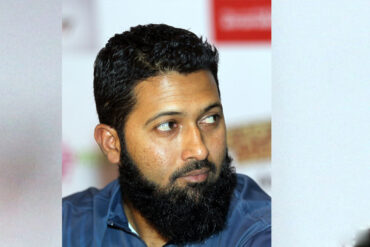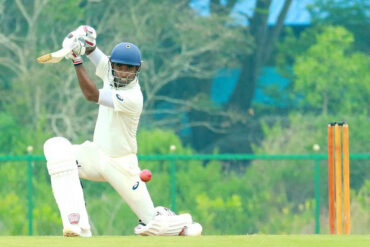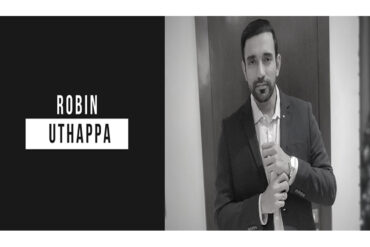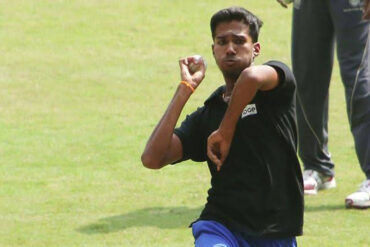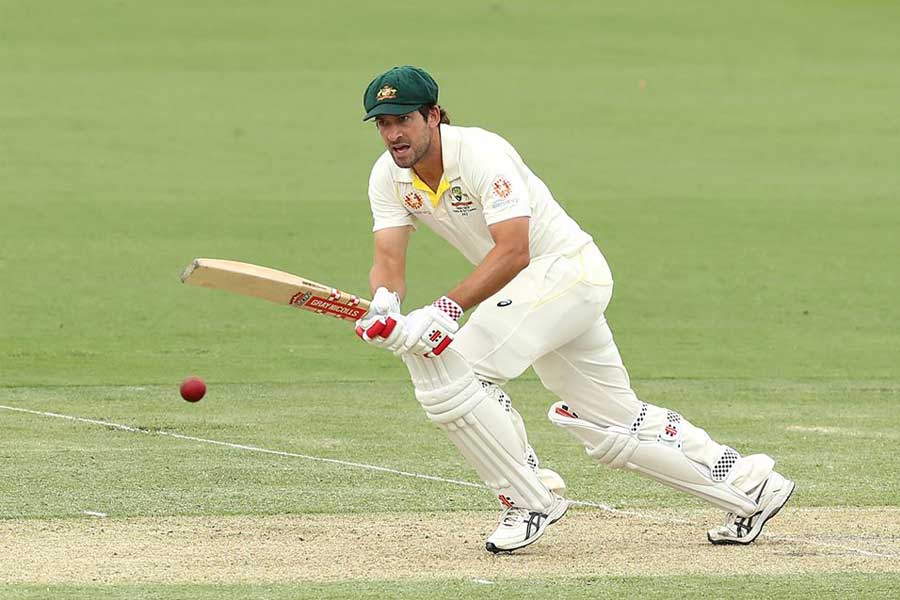Whenever Glenn Maxwell walks in to bat, especially in the shortest format of the game, he has commands complete attention of the crowd and the Live TV audience.
He didn’t disappoint his legion of fans when he played his last match—the first Twenty20 International (T20I) between Sri Lanka and Australia in Adelaide. Batting first, Australia put up 122 for 1 in 10. 5 overs before Maxwell walked in. After a couple of singles off the first two balls, he reverse-swept a googly from spinner Sandakan almost effortlessly, as if he just didn’t care. He waited and executed the shot beautifully.
The crowd went berserk. In the next few minutes, Maxwell thumped the Sri Lankan bowlers one by one, as he hammered seven boundaries and three sixes en route 62 off 28 balls. In the second innings, a mic’ed Maxwell, while in conversation with the commentators, casually effected a brilliant run out. There was so much swagger on display that no one could have guessed his actual frame of mind.
“That’s the mask he puts on, it’s his armour, his energy and the way he plays. He’s the great entertainer, but underneath the mask, you probably just sense it. When you build relationships with people you sense when they’re not quite right,” Australian Coach Justin Langer said after Maxwell announced an indefinite break from cricket, the very next day, for mental health reasons.
Since it was a top athlete like Maxwell, the issue did not go unnoticed, unlike the time when another Australian cricketer, Moises Henriques, had opened up about his battle with mental illness in 2018.
Henriques, then New South Wales skipper, admitted that he was afraid of failure and missing out on selections. “I was blaming cricket for my anxiety and I wanted to do well so much that it just took over. It just wasn’t healthy at all,” Henriques added.
Soon after Maxwell, two more Aussie cricketers—Nic Maddinson and Will Pucovski—came open about mental illness and withdrew from the season underway. Maddinson, who overcame his mental demons a couple of years back, was making a fantastic return with the bat. The Victorian batsman had just scored 224 against South Australia last month and was averaging 66.17 this season.
The more heartbreaking situation was 21-year-old Pucovski’s. It was the second time in the year he had suffered from a relapse on the brink of a potential Test debut.
The slow change in culture
One of the biggest taboos they broke here was—cricket is not the end of the world. Cricket is not everything. There is a life outside cricket, which is equally important. These cricketers took the brave step by admitting that everything was not okay and they needed time to re-set their lives.
Athletes are always under the pressure of performing. Even a string of bad performances can lead to brutal questions from the media or lead to getting axed. This pressure can lead to major psychological stress. Despite that, elite players have often preferred to not speak about stress and mental health in the past. Or even if they did, it was received poorly.
Former English cricketers—Marcus Trescothick, Mike Yardy, Jonathan Trott and Steve Harmison—have all mentioned their mental health issues in their autobiographies. While their mental well-being paused their international careers, nobody understood their struggles.
When Mike Yardy left the 2011 World Cup, a pundit said, “He must have been reading my comments about his bowling. That must have upset him because it’s obviously too much for him at this level.”
Meanwhile, Steve Harmison never revealed his mental health issues because he was scared that he would never play for his country again. His struggles were written off as ‘homesickness.’
When Trescothick returned home leaving the 2006 tour midway, he just revealed that he had picked up a virus and also had a few personal issues to deal with. He was scared of admitting the truth and why wouldn’t he be?
Even Indian skipper Virat Kohli recently opened on suffering from anxiety and mental health issues after the tough tour of England in 2014. In a highly competitive Indian set-up, even Kohli was insecure to open up about a delicate topic. Kohli’s revelation was soon followed by other Indian cricketers like Abhinav Mukund and Yo Mahesh, revealing their battles with depression and anxiety.
According to research done by Durham University, while growing up, the male peer group culture is understood to be the establishment of their masculinity. This includes belittling other boys through discursive regulation, homophobic jokes and physical bullying. The young boys learn that masculinity means you must revere violence, endurance and distance yourself from anything that could be a mark of weakness.
Historically, playing a sport itself meant the display of masculinity and it was always said that only ‘real men’ take up sports. Countries such as Australia and England have been at the top of ‘manly’ sports like football, rugby and soccer because they are tough and physical games.
Thankfully, in recent times, the definition of masculinity has softened. The sportspersons have been seen talking about feelings, revealing their issues about mental health and having an open active family life, especially during childbirth. Athletes do not hesitate anymore to take maternity leave to be with their wives or girlfriends during such an important time.
In Joe Burns, Australia sets an example
In fact, Australian cricket has been responding positively to such players and there cannot be a better example than Test opener Joe Burns. His Test career has been nothing short of a roller-coaster ride since his debut in 2014. He recorded his maiden Test century in his fourth Test appearance but never managed to hold a place in the side for a long time.
In the past five years, he has been dropped four times and that can be a tough phase for a cricketer to fight with. Burns’ longest stretch in the side was a nine-match sequence between November 2015 and August 2016. Time and again he boosted his Test selection but remained on the fringes. He had scored 1,220 runs at 42.06 and that made him one of just five Australians to have recorded 1,000-plus runs at more than 40 since his December 2014 debut.
Burns played the entire 2018-19 domestic summer and was a key player for Queensland and Brisbane Heat in the Big Bash. With several impressive performances, the opener forced himself back into the Test squad in the absence of David Warner, who was serving a ban. Burns then notched up his highest Test score of 180 earlier this year in Australia’s home series against Sri Lanka.
While the Queenslander was on a cusp of Ashes selection, he was forced to cut down his preparation after he was diagnosed with chronic fatigue syndrome. According to the US National Library of Medicine, it was an “all-pervasive complex experience that substantially reduces the ability to function personally or professionally with a patient’s functional level reduced by more than 50 per cent of what it was at pre-illness levels.”
Australia retained the Ashes Urn in England but needed a solid top-three for the upcoming summer at home. Australian coach Langer has been outstanding with the way he has handled the players, especially after they were majorly affected by the ball-tampering controversy. One of the best decisions he made ahead of Australia’s home Test series against Pakistan was to bring back Burns as Warner’s opening Test partner.
Burns’ equation with Warner encouraged Langer to recall him. It is important for openers to get along well to understand each other and partner together. By scoring a terrific 97 on Day two in the first Test against Pakistan, Burns lived up to Langer’s expectations. He also shared a 222-run opening stand with Warner and that took their partnership aggregate to 1,064 at an average of 53.20 with five centuries.
After the backing of Burns by Australia, cricketers in Australia now know that they will be backed by their board during such tough times. And that is a very positive step in an era when depression is all-pervasive.

